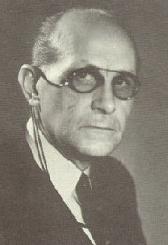A Quote by Thomas L. Dumm
Worldwide, the twentieth century has seen the rise of extraordinary concentrations of economic and political power - evoking the people as the source of power while simultaneously privatizing its most meaningful exercise. Democracy always seems to be at least slightly elusive under such conditions.
Related Quotes
In the words of Louis Brandeis, the Supreme Court justice, we have a choice between a democracy or vast concentrations of wealth. We have vast concentrations of wealth which has bought its way into our democracy with its political leaders who exemplify the merger of that economic and political elite.
Viewed as a means to the end of political freedom, economic arrangements are important because of their effect on the concentration or dispersion of power. The kind of economic organization that provides economic freedom directly, namely, competitive capitalism, also promotes political freedom because it separates economic power from political power and in this way enables the one to offset the other
Democracy depends on citizens being informed, and since our media, especially television (which is the most important source of news for most Americans) reports mostly what the people in power do, and repeats what the people in power say, the public is badly informed, and it means we cannot really say we have a functioning democracy.
Given that the nineteenth century was the century of Socialism, of Liberalism, and of Democracy, it does not necessarily follow that the twentieth century must also be a century of Socialism, Liberalism and Democracy: political doctrines pass, but humanity remains, and it may rather be expected that this will be a century of authority ... a century of Fascism. For if the nineteenth century was a century of individualism it may be expected that this will be the century of collectivism and hence the century of the State.
I don't think this is a situation where you can say that Congress was avoiding any mention of the tax power. It'd be one thing if Congress explicitly disavowed an exercise of the tax power. But given that it hasn't done so, it seems to me that it's - not only is it fair to read this as an exercise of the tax power, but this court has got an obligation to construe it as an exercise of the tax power if it can be upheld on that basis.
Power from any source tends to create an appetite for additional power. It was almost inevitable that the super-rich would one day aspire to control not only their own wealth, but the wealth of the whole world. To achieve this, they were perfectly willing to feed the ambitions of the power-hungry political conspirators who were committed to the overthrow of all existing governments and the establishment of a central worldwide dictatorship.


































